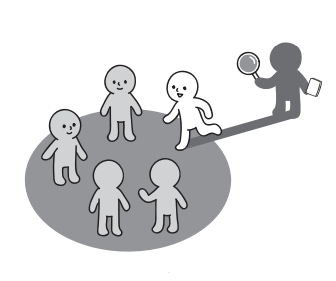Field Diving/OG
Jump to navigation
Jump to search
It’s not until diving into the field that you touch upon reality.
***
▼In this context
▼Therefore
| Field Diving | |
| Contributors | Takashi Iba, Mami Sakamoto |
|---|---|
| Last modification | May 17, 2017 |
| Source | Iba & Sakamoto (2011)[1]; Iba (2010)[2] |
| Pattern formats | OPR Alexandrian |
| Usability | |
| Learning domain | |
| Stakeholders | |
“A desk is a dangerous place from which to watch the world.”— John Le Carr´
“Experience without theory is blind, but theory without experience is mere intellectual play.” — Immanuel Kant
“The map is not the territory” — Alfred Korzybski
You are thinking about and have an interest in an actual problem.
You cannot touch upon reality only by referring to documents.
- • Given opportunities are not always suitable for you.
- • It is not easy to notice what is not there.
Dive into the field and work with the people concerned while maintaining the viewpoint of an outsider.
- • Search for a field that you are interested in.
- • Dive into the field, and observe what is going on there.
- • Understand the context and intention of the activities, while interacting with the people concerned.
- • Deepen your understanding of the reality by reconsidering your experiences from a certain point of view.
References
- ↑ Iba, T., & Sakamoto, M. (2011). Learning patterns III: a pattern language for creative learning. In Proceedings of the 18th Conference on Pattern Languages of Programs (PLoP 2011) (p. 29). New York:ACM.
- ↑ Patlet mentioned in Iba, T. (2010). Designing a Pattern Language for Creative Learners.
